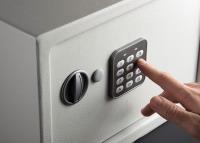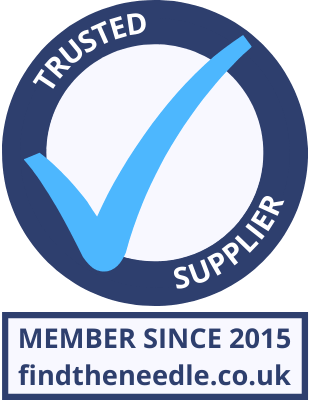 Add My Company
Add My Company
Sign In
6 Things to Consider when Buying a Safe
19-08-2020

Buying a safe can be a substantial but necessary investment for many households, and whilst the Crime Survey for England and Wales shows that incidents of theft from personal property is falling, there were still over 600,000 offences in the year ending March 2020.
Protecting your valuable items such as keys, jewellery, phones, cash, laptops and important documents is important and if stored in a safe, they become unobtainable to intruders who will grab what they can find.
But with so much choice, how do you know what safe to buy? Read on for the 6 considerations when choosing a safe.
1. The Items – What do you want to secure?
The first step to buying a safe is to think about what you need to put in a safe? Is it just for expensive jewellery, or will it be for larger items such as a laptop or a gun? Deciding exactly what you are going to need to store securely will help you decide how large or small the safe needs to be.
There are some safes that are specifically designed for jewellery or cash that are small and compact, whilst others are larger or can be made bespoke and still others that can be hidden under the floor.
2. The Size – How big does the safe need to be?
Domestic safes come in all sorts of sizes so it’s important to ensure that you’ve checked the external measurements and are confident that it will fit into your designated space or room.
Do also check the internal measurements – some safes will have a bigger discrepancy between the internal and external measurements, this is usually due to the width of the panels but may also consider inbuilt ancillaries such as shelving, so make sure that your possessions will definitely fit in.
If you choose a large safe, you may need to think about installation and access to the room. Can the safe be easily manoeuvre through the property, or will it need to be delivered via a crane through a window?
The location of the safe may also be decided by its weight. Some large safes may need to be stored on a ground floor instead of the first floor to be properly supported or require certain structures in order to be secured to the property.
3. The Insurance Cover – What cash rating do you need?
Each safe will have a certain cash rating. This rating stipulates how much cash can be stored in the safe for insurance purposes. The value of other items that can be stored in the safe is, generally, ten times the cash rating, but check with your insurance company.
E.g. A 5,000 cash rated safe can store either £5,000 of cash or £50,000 of valuables.
Insurers will require a safe to be AIS approved. It’s important therefore to check with your insurers as to the standards that they require before making your final purchase.
4. The Threat – What are you securing your items from?
The reasons for storing items in a safe will vary from protection from fire, from burglary or even cyber-attack.
Fire proof safes give protection for your items and paper documents keeping the internal temperature to less than 177ºC and can protect them for 30- 180 minutes depending on the model.
Other safes are specifically built to resist a determined attack and can have special barrier materials to resist against various forms of attack. In retail environments, counter safes reduce the amount of cash kept in the tills to deter smash and grab raids.
At the other end of the scale, specialist computer equipment cabinets and safes have been designed to protect your electronic equipment and phones to withstand damaging cyber attacks.
5. The Access – What locking mechanism do you want?
Whilst protecting your items from intruders and would-be thieves, you yourself will want to be able to access the items easily and without fuss.
There are a whole range of different locking mechanisms for safes from pin codes and keys, to biometric data. We’ve listed some key considerations about each one below:
Key locks
Only a person with the key can open the lock
Easy to use
Physical and doesn’t have a number that can be forgotten
Can be long and awkward to carry
Keys might get lost
If lost, you should replace the lock
Mechanical Combination Locks
Usually a combination of 3 or 4 numbers (very secure)
No need for a key or anything physical to access
They tend to have a long life and don’t require batteries as electronic locks do
Ability to set your own code
The process of opening the lock is slower and may be a frustration in an emergency.
Internal mechanisms can become misaligned and may need maintenance
Code could be forgotten
Electronic Locks
Require a simple code
Easy to use
Resistant to being tampered with as they can have thousands of different code combinations
Ability to set your own code and change when you want
Allows multiple users and no key to share
Most are battery operated so will need battery replacements
Code could be forgotten
Bio-metric Locks
Personalised to your fingerprint
Only opened by you
Eliminates the risk of losing the key
Ability to have multiple fingerprints
If the authorised person is not around – there is no way the lock can be opened
6. The Supplier – Who should you purchase a safe from?
There are many safes on the market, but we would always advise purchasing from a reputable company and accredited safe supplier. The key accreditations to look out for are Master Locksmiths Association (MLA) and British Safe & Vault Association (BSVTA)
They will have specialist knowledge of the different levels of protection that models can give as well as locking options and be able to advise you on the one that will best suit your needs and comply with your insurer’s specifications.
Purchasing a Safe From Thornhill
Here at Thornhill we have over 40 years’ experience in this field and are dedicated to helping you find the right safe to meet your requirements. Whether you purchase a small domestic cash safe or a larger commercial one – we pride ourselves on offering the same high quality safe installation service.
We are a qualified locksmith and you can have peace of mind that you will you receive high quality products with a high standard of service from purchase through to installation and maintenance thereafter.
Please feel free to call us on 0117 967 4994 for advice or help in choosing your new safe.
For more information on 6 Things to Consider when Buying a Safe talk to Thornhill Security Ltd
Enquire Now
List your company on FindTheNeedle.

